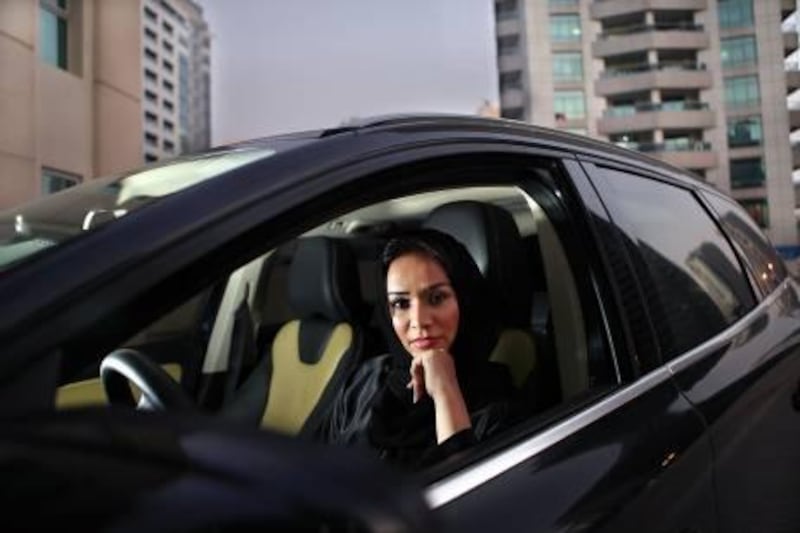DUBAI // Hanan Rebdi believes the image of Saudi women has for too long been driven by limited perceptions.
"I'm so tired of the stereotype of a Saudi woman: that she only looks a certain way, dressed in abaya and headscarf, and that she can't drive," said Mrs Rebdi, a Dubai resident in her late 20s. "We are more than that."
And so last month, as she watched and rewatched King Abdullah announcing Saudi women will have the right to vote and stand in municipal elections and sit on the Majlis Al Shura, she was almost in tears.
"King Abdullah is pro-women," said the interior designer. "He honours us and always says only good things come from women. His own daughter Princess Adela is so active and a role model for us."
After the announcement, her husband Nabeel Al Moalimi was the first to encourage her to stand in the municipal elections, or for the Shura.
"She has the right personality and the drive to become a great politician," said Mr Al Moalimi. "Our women have a lot to give but were never given the chance."
The family of four - they have two sons, Omar, 4, and Abdullah, 8 - moved to Dubai in 2005.
Mrs Rebdi spends much time on yoga and "spiritual self-discovering" when not driving her sons to and from school.
"I don't enjoy the responsibility of driving back and forth to school and would prefer a driver so I can spend quality time with my children in the back seat," she said.
"But I want the option of being able to decide whether or not I want to do the driving myself."
The couple agree the right to drive would also have been welcome.
"This issue has been dragging on for decades - enough already," said Mr Al Moalimi, aged in his 40s, who works in audit and is an artist.
"Let us move forward and focus on more positive things that make Saudi Arabia special."
He said there were other issues that needed to be addressed.
"There is this fundamental fear in Saudi Arabia that the minute women and men are allowed to mix, it will lead to unholy acts and sex. There is no understanding of respectful platonic relationships."
Moving to the UAE helped Sarah Dundarawy, a single Saudi journalist and TV presenter, to launch her career.
"It is very difficult to be a female journalist in Saudi Arabia. You can't just show up and drive to your meetings," she said. "You remain dependent on a man there. Here, you can be on your own and be yourself."
Having covered political and social issues in Saudi, she believes women's journey to power there is likely to be bumpy.
"Women don't support other women as they should," Ms Dundarawy said. "You hear things like I would never go to a female doctor, or to a female dentist. Women should trust and support other women."






